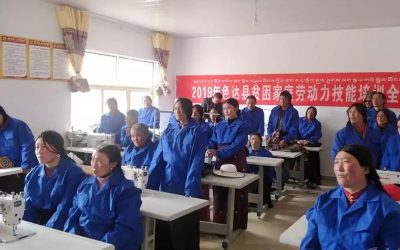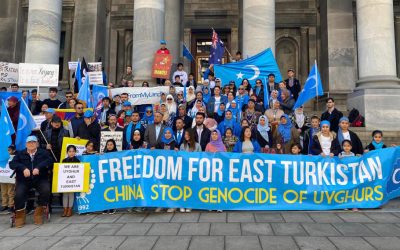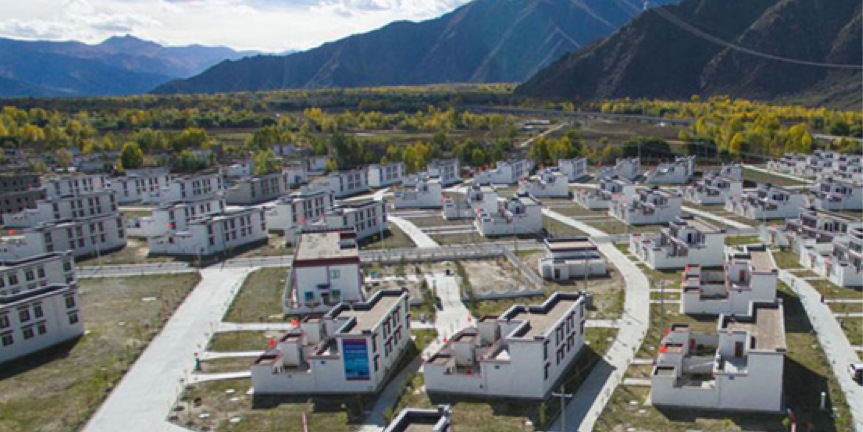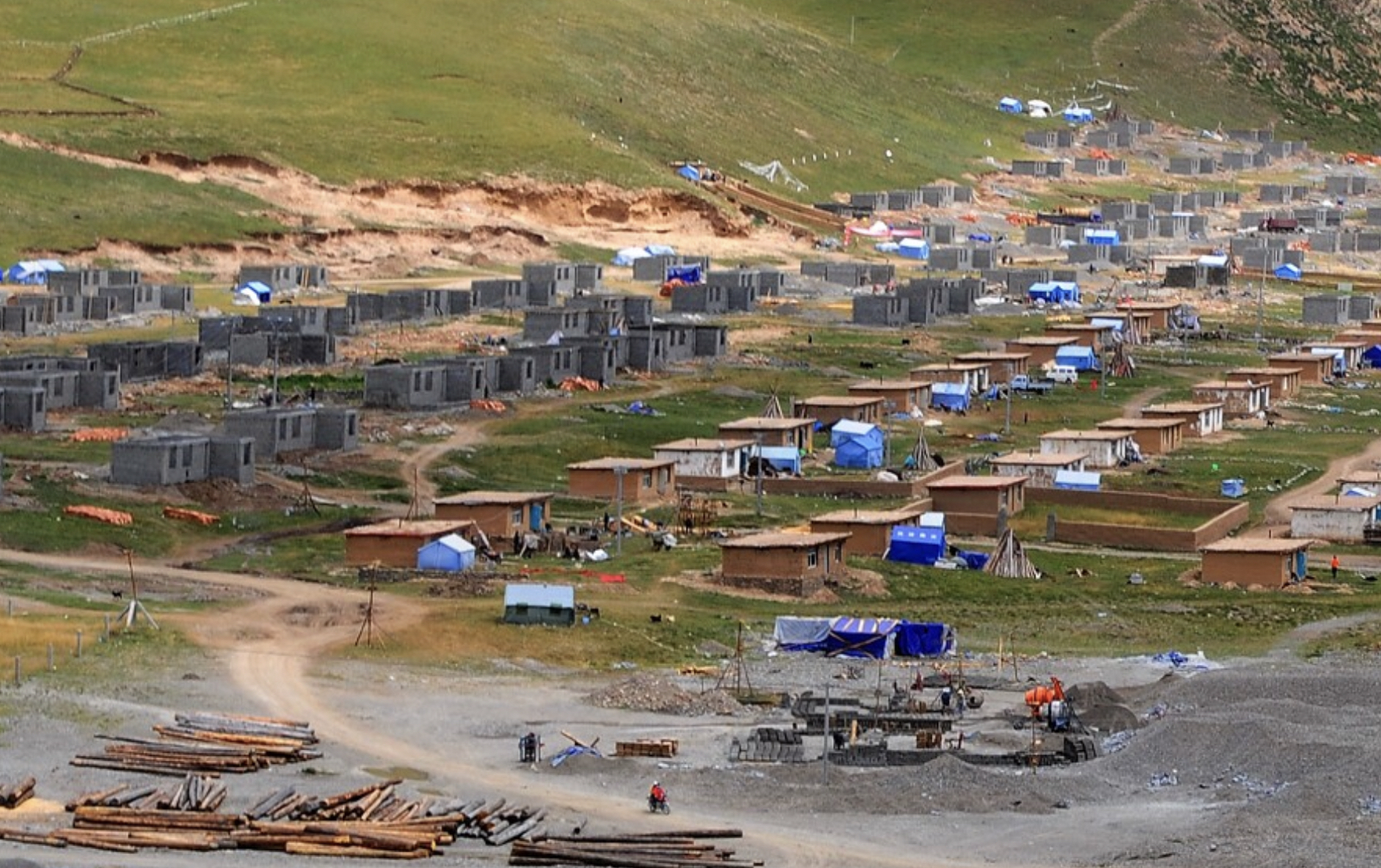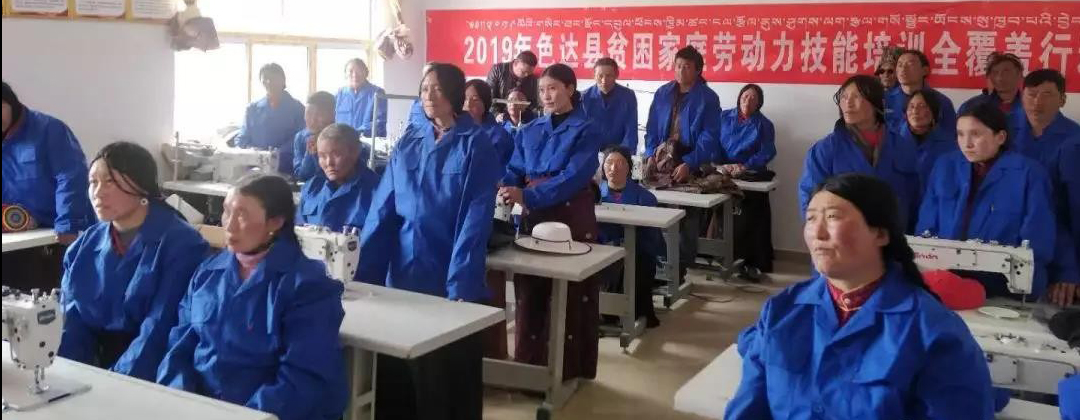
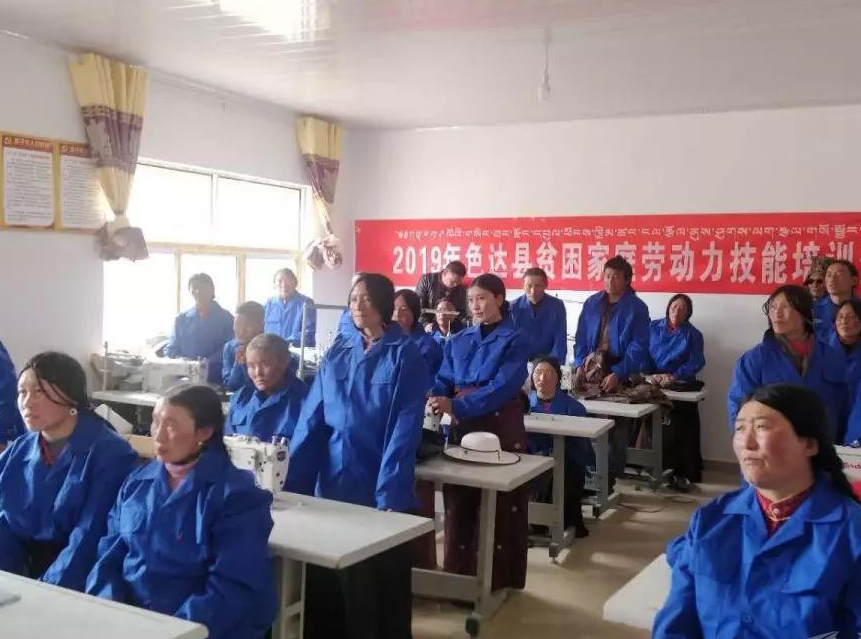
Forced Labour and Family Separation
This campaign aims to increase public awareness of forced Tibetan labour and amend the Customs Act so that the use of Tibetan forced labour is outlawed in Australian company supply chains.
Social control and extreme surveillance measures first experimented with by CCP boss Chen Quanguo in Tibet were fine tuned and vastly accelerated in East Turkestan (Xinjiang). Last year, aspects of these sharpened social control mechanisms were brought back to Tibet in the form of forced labour camps.
While the CCP has used the forced labour of Tibetans as a key implement to attempt to control Tibet and its people since the early days of occupation, the coercion has taken a more extreme form. Specifically, ‘Military-style vocational training’ under the watchful eyes of the People’s Armed Police and labour transfers under the ‘care of team leaders’. The scheme states in the words of Chinese Administration that it is “designed to alter thinking, dilute the negative influence of religion and reform backwards thinking”.
Nomads and farmers are being forced to hand over their land and herds to cooperatives, further removing Tibetans from their traditional way of life. Families are being separated as ‘labourers’ are relocated under the transfer program. According to official documents the ‘left-behind’ children, wives and elderly family members are to receive the state’s ‘loving care.’ This separation of Tibetan family members and nomads from their land and animals is an attack on the very essence of Tibetan identity.
In the first 7 months of 2020 over half a million Tibetans went through this new ‘Military-style vocational training’. We’ve been unable to trace what has happened to the vast majority of those Tibetans, but we do know that 49,000 were transferred to placements within what China calls the Tibetan Autonomous Region and 3,100 were moved to other provinces in China.
Training is undertaken on an on-demand basis matching to specific corporate requests and requirements. Work teams operating door-to-door, alongside ‘grid management’ and ‘double linked households’ these methodologies of social control and surveillance are key elements to recruitment. Reinforcing the scheme’s nature are strict quotas and a reward and punishment system for those managing and organising the forced labour scheme. As if an Orwellian dystopia, documents describe unified processing, batch-style transfers, government involvement, financial incentives for middlemen, participating companies able to batch order to specification and all based on state-mandated quotas.
We gave a submission to the Inquiry into the Customs Amendment (Banning Goods Produced by Uyghur Forced Labour) Bill 2020 making the case that Tibetans should be incorporated in a law banning forced Uyghur Labour.
The draft bill was later revised to include all forced labour regardless of geography or ethnic origin including that occurring in Tibet and Tibetan forced labour in China. On 23 August the legislation passed the Senate.
In May 2023, ATC lobbied the Australian Parliament to revisit the Customs Amendment Act, this time sponsored by Greens Senator Jordon Steele-John.
Under the guise of ‘poverty alleviation’ the Chinese Government has been operating forced labour programs in Tibet for years – and now the world is finally taking notice.
At the May 2023 G7 meeting in Hiroshima, Japan, the G7 stated in their communique that they, ‘will keep voicing our concerns about the human rights situation in China, including in Tibet and Xinjiang where forced labour is of major concern to us.’
The Chinese Government is currently being investigated by the UN for forced labour in Tibet [UN Ref.: AL CHN 14/2022]. The UN has expressed concern that Tibetans are being forced to leave sustainable and traditional livelihoods, such as wool and dairy production, to work in low-paid, low-skilled work in manufacturing and construction in China.
Furthermore, the Chinese Government is forcing Tibetans into ‘vocational training centres’, which focus less on developing professional skills and more on cultural and political indoctrination in a militarised environment.
In May 2023 ATC did an email member action which asked Representatives to support the Green’s bill to amend the Custom’s Act.
The bill unfortunately was voted down, rather favouring the Labor Government led Modern Slavery Act.
Email your MP to ban the imports of goods made with forced labour
TAKE ACTION: Ask your MP to support a ban on products made with forced labour. Very soon the House of Representatives will be voting on Senator Rex Patrick’s amendment to the Customs Act that is designed to end the importation of goods that have involved forced labour, including those involving Tibetan forced labour.
Senate passes forced labour amendment
On 23d August, Senator Rex Patrick’s revised Customs Amendment bill to stop the importation of goods made with forced labour passed the Senate. We expect that the bill will be debated by the House of Representatives in its next sitting session, mid to late October.
UPDATE: Rex Patrick’s forced labour bill
Earlier this year, we gave a submission to a parliamentary inquiry into a bill banning goods produced by Uyghur forced labour and the committee reviewing the bill has now presented its report to parliament. In this blog, we unpack the recommendations.
Submission: Inquiry into the Customs Amendment (Banning Goods Produced by Uyghur Forced Labour) Bill 2020
Our submission argues the urgent need to include Tibet and Tibetans in the Customs Amendment Bill 2020. The submission is currently being considered.
Forced labour camps in Tibet
An explosive report has revealed that half a million Tibetan nomads and farmers have been forced into military style labour camps in Tibet. Here they are subjected to indoctrination and intrusive surveillance, under the mask of ‘vocational training,’ before being sent to work in factories in Tibet or China.

